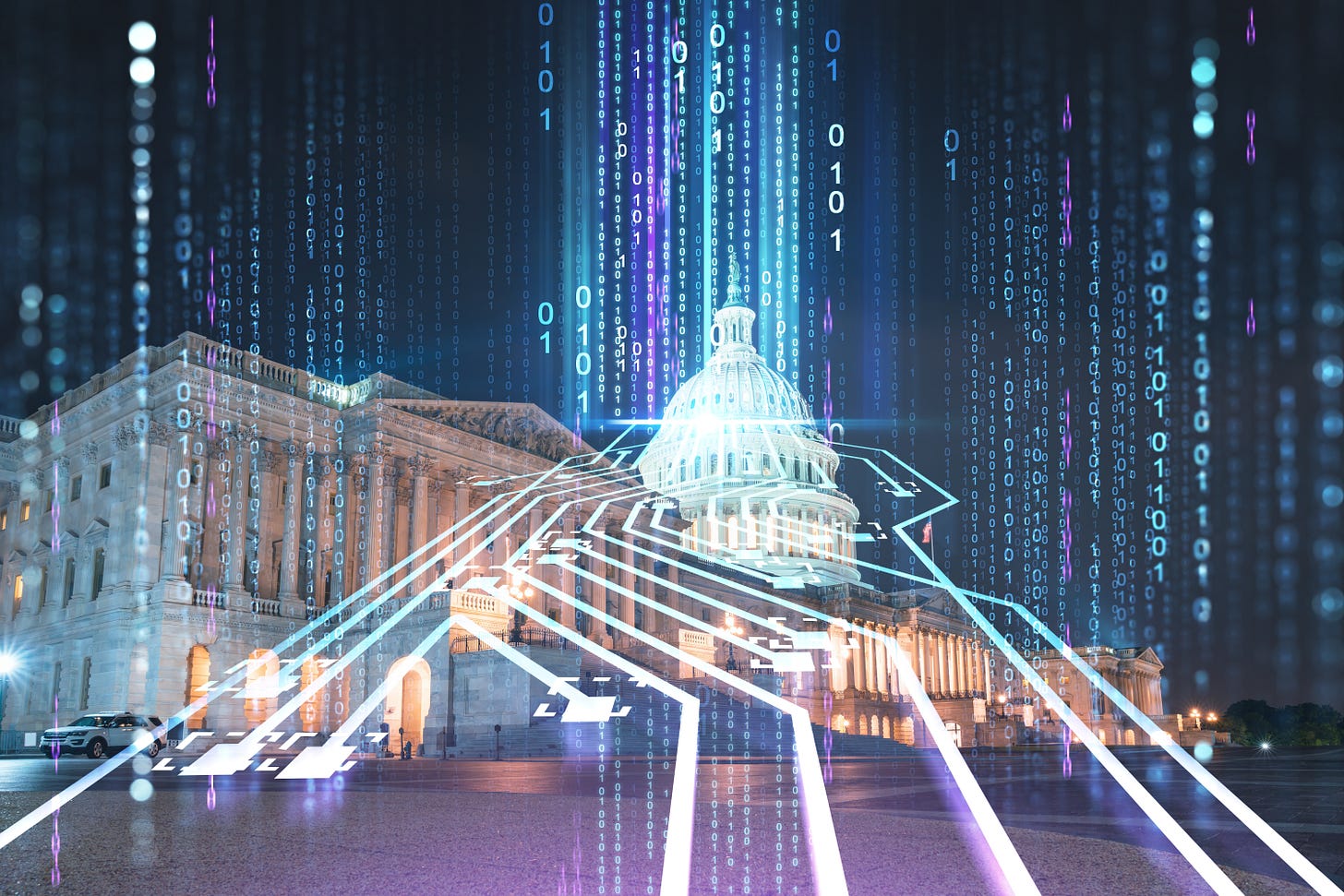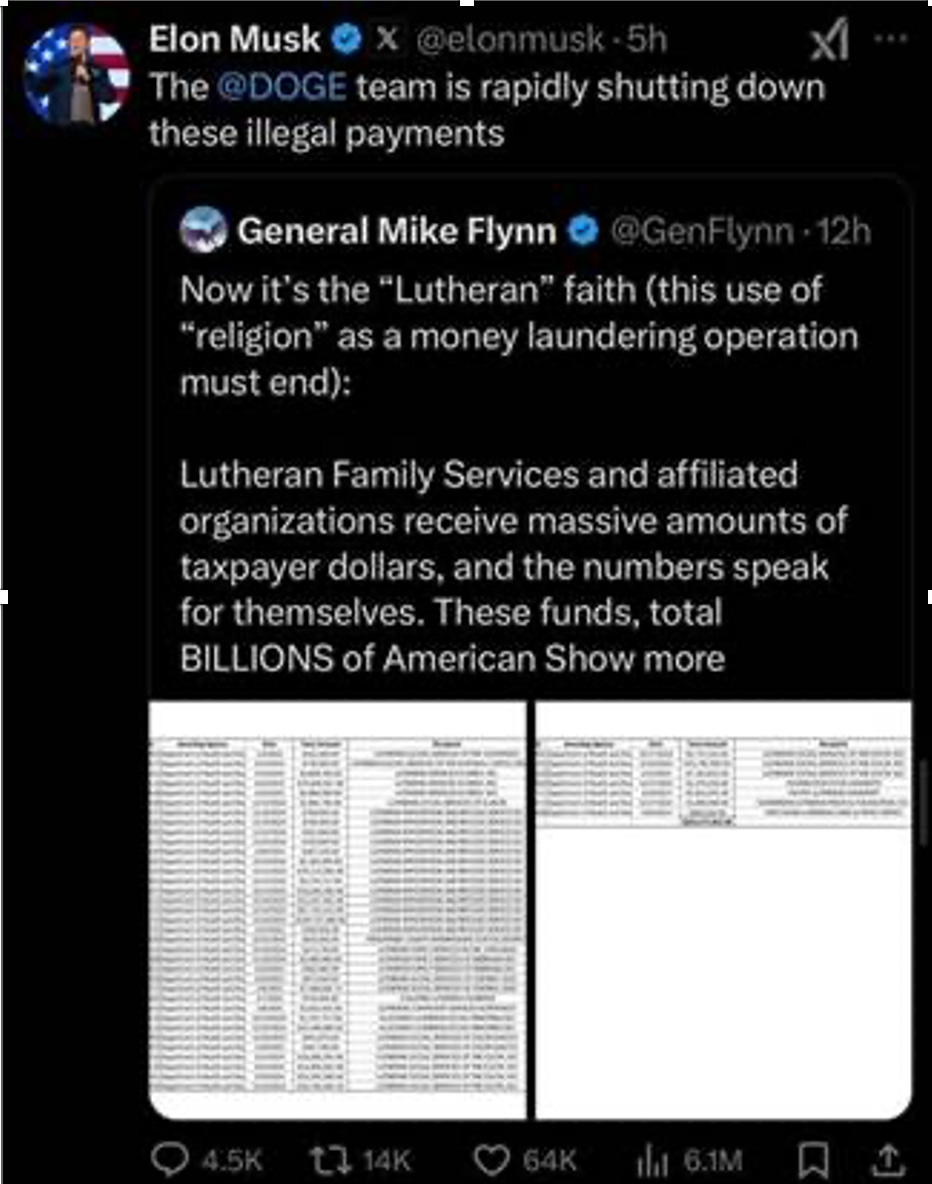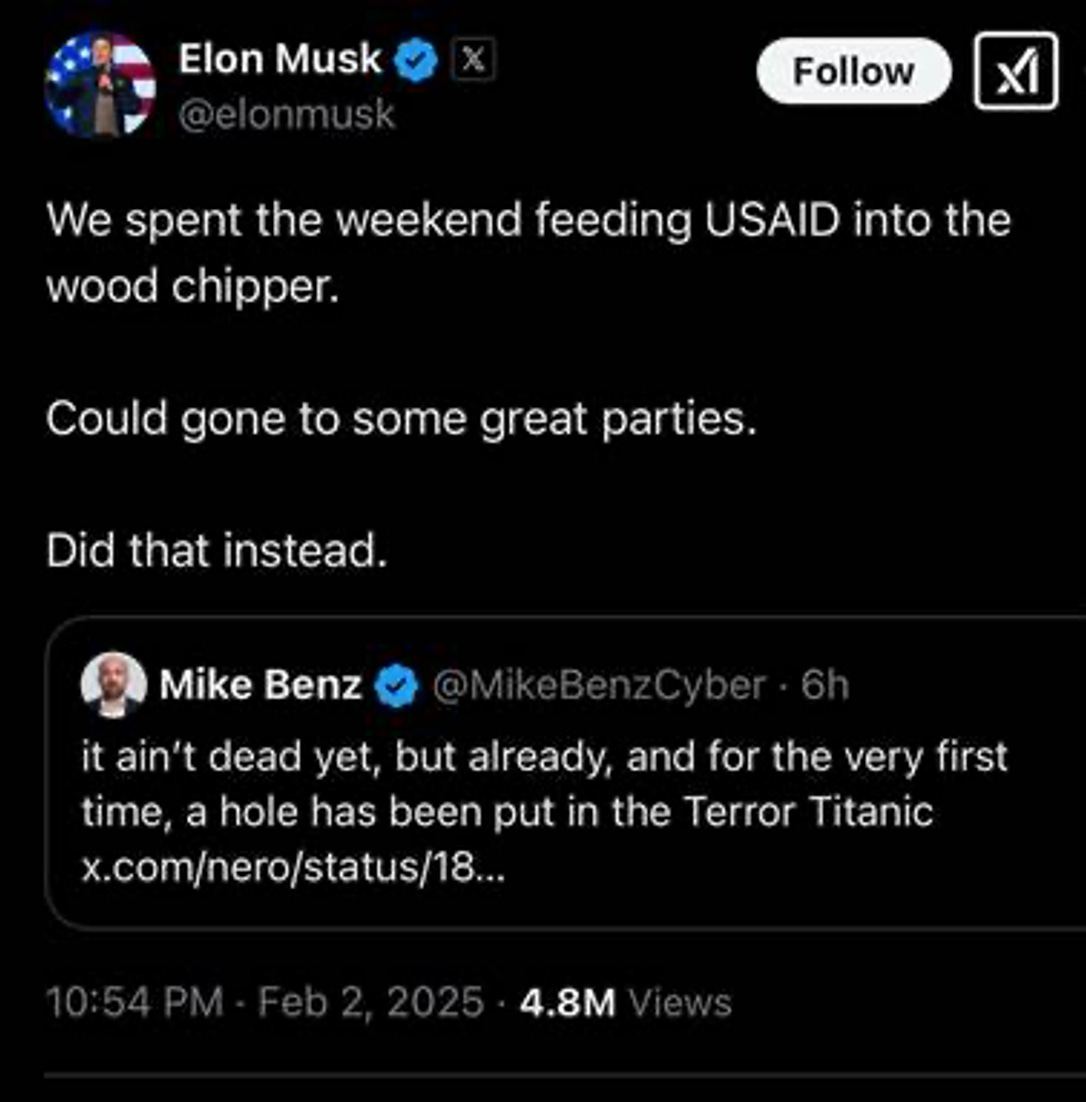All the Government’s Data
Government survives because offices that are taken for granted make its work possible
When people are asked “what is the most important thing in life?,” they tend to respond with answers like family, friends, faith, and devotion to meaningful work. They virtually never say “oxygen.” And yet, deprived of oxygen, people would die within minutes. We all take it for granted.
Government works like that too. If you think about what is most important about government, you’re probably tempted to list the programs that benefit you and those you care about, plus the programs that defend the values you honor. Perhaps it’s Social Security and Medicare. Perhaps it’s all of the ways that government keeps people safe through disease control, food inspections, aviation security and national defense. Perhaps it’s your passport. Perhaps it’s the commitment to democracy or the rule of law.
But ultimately, government survives because offices that are taken for granted make its work possible. Government could not function if there weren’t ways to create and maintain a federal work force and to distribute money to those who do the government’s work. Governments need buildings and IT systems and the basic infrastructure of workplaces. Those offices—the ones that organize the people, the money and the infrastructure—are what keep governments alive. And these days, the infrastructure of government runs through data.
Since President Trump’s inauguration, Elon Musk and his very young helpers (I’ll call them the Muskovites) have broken into the public systems and databases that provide this crucial infrastructure. By tampering with crucial data they are depriving our institutions of the equivalent of oxygen. The US government is now on life support, gasping for constitutional air.
First, the Muskovites entered the Office of Personnel Management (OPM), the office that keeps track of the federal workforce. They occupied it on 20 January, installing beds on the top floor of the building where the agency’s top staff is located so that they could work 24/7.
We can’t tell everything that they are doing, but it’s clear that they used the giant database of federal workers to create an alternative email system that blasted out messages to the entire workforce last week, bypassing the usual method of communication which runs through agency heads down to the employees of specific units. Not only did this new jerry-rigged email system send out the now infamous “Fork in the Road” memo to all federal workers, encouraging them to resign (on, to put it politely, a questionable legal basis), but it was instantly spammed by people from both inside and outside government who used it to send their own messages to all federal workers at once. The system had no security protocols. Two new lawsuits argue that the email system was set up without following procurement procedures or cybersecurity rules mandated for government systems. That has not stopped the system from barking commands to all, like the demand to take pronouns off email signatures immediately.
The Muskovites were just beginning at OPM. Over last weekend, they locked high level career civil servants out of their offices and the key databases. Professional civil service OPM leaders lost access not only to the information that allows them to do their jobs but also to information about who was accessing their data. With career leadership out of the way, the Muskovites installed a new server called HR@opm.gov, commercial hardware that had not been through the privacy checks government computers must pass. OPM staffers described this new server as the “command center” through which all of the other databases were now managed. In short, the Muskovites hacked the system and made it theirs, with little concern for the security of the data.
The mandatory security checks for new technology across the government were previously performed by the US Digital Service, the very agency that was gutted and renamed DOGE—the organizational cover for Musk.
An OPM staffer reported that staff were instructed by the new agency leadership to give the Muskovites administrator access to all of the government’s personnel files with “read and write permissions.” One database, called Enterprise Human Resources Integration, contains home addresses, social security numbers, birth dates, and details of each employee’s work and pay. Another database gave Musk team access to the system that contains health information about all government workers. With the access the Muskovites had, do we know whether any data were changed? Or transferred to the new (insecure) server to be made available for private purposes? We can only tell from what happened next, which is that they combed through the job descriptions to find out who staffed “DEI offices” throughout the government to remove them from active service. And now they are being sued.
OPM’s inspector general, Krista Boyd, was one of the many inspectors general fired by Trump on 24 January, so the agency is operating without independent oversight.
The Muskovites have also taken over an obscure federal office inside the Treasury Department, the Bureau of the Fiscal Service, which manages the government’s payment systems. This office contains the Treasury Department infrastructure that controls virtually all payments made by the US government to third parties. The career civil servant in charge of the system resisted the takeover and was put on leave. The newly-confirmed Treasury Secretary, Scott Bessent, then handed the keys to the system over to Musk’s people late on Friday night, January 31, enabling them to work through the weekend to burrow into the details of who receives government money.
At first, those familiar with the legacy IT systems in this office believed it was unlikely that Muskovites could gain the power to shut off individual line-item payments. They worried instead that the Muskovites would simply break the system that ensures that federal money reaches the right recipients. Later information reported by Wired revealed, however, that the Muskovites had in fact gained full administrator access to the government database controlling all payments.
The Muskovites were apparently given both read and write access to two of the most sensitive systems, the Payment Automation Manager and the Secure Payment System, which are the systems that actually pay out money, amounting to about one-fifth of the US economy. Not only were they able to read the code that powers the systems, but they also had the permissions necessary to rewrite that code. This access allows them to change who else can access the data as well as to delete or modify files. And it empowers them to bypass security checks.
While it is impossible to know at this point just what the Muskovites did inside the system last weekend, a public exchange on X that Musk had in the wee hours of Saturday morning with former Trump national security adviser (and convicted and pardoned felon) Michael Flynn suggests that they have gained control of who receives government money:
This exchange begs many questions. How did a private citizen like Flynn have access to these details of the contract payments received by Lutheran Family Services to run refugee resettlement services, mount disaster response, and organize child welfare and adoption services, among other things? And did Musk really zero out specific contracts once inside the payments system?
The Constitution says—and the courts have elaborated—that Congress appropriates public funds and the President must spend them as Congress has instructed. Impoundment (the failure of the executive to spend appropriated funds) is still unconstitutional. This government and its various agents are disregarding these constitutional niceties. Instead of enforcing the laws that the Muskovites are breaking, the US attorney for the District of Columbia threatened those who were trying to figure out what the Muskovites were doing.
Another unsexy agency, the General Services Administration (GSA), controls the physical infrastructure of government—the buildings, the land, the real estate holdings and the IT systems. Here, too, the Muskovites have been busily infiltrating the data systems, using IT credentials from the Executive Office of the President to access GSA laptops and infrastructure. And what would they find in these databases? Procurement data for the whole government. And all of the government’s property.
At the GSA, Muskovites have reviewed the government’s commercial real estate portfolio and are putting properties up for sale and terminating leases. A January 30 memo from the acting GSA administrator paused all new contracts and other procurements through the agency. Around that time, the Muskovites accessed the internal monitoring software that would allow them to “remote into laptops, listen in on meetings, read emails, among many other things.”
Today, a Musk tweet reported that he had “deleted” the “18F group” from the GSA’s technology office, having previously attacked this group for being “far left.” This was the office that had worked with the Internal Revenue Service to create a simplified tax filing system called Direct File. And now it’s gone.
These three agencies—the Office of Personnel Management, Bureau of the Fiscal Service and the General Services Administration—provide the services that enable all of the government’s other agencies to operate, and they run databases that provide a wide-ranging view of the government’s overall operations. By infiltrating the infrastructure, Musk and his team gained crucial information that enable them to see deep inside the US government. By bringing in new technology without going through the required security checks, hacking old technology and accessing sensitive personal data of the whole federal workforce as well as details of individual government payments, the Muskovites have made government massively less capable of protecting its own people. They have also created the very real possibility that money could be redirected or stopped in unconstitutional processes and opened up newly insecure systems to easy invasion.
And in the end, what has Musk accomplished in his romp through the government’s infrastructure? He bragged that he has killed off the agency that provides crucial foreign assistance, revealing one important target of his weekend work:
In this data age, murder is accomplished not just by physical violence, but also by erasing people, their funding and their history from databases so that the government no longer recognizes their existence. “Social death” has a long history. The Muskovites now have free reign in crucial government databases, able to change reality on the ground by altering or disappearing it from the dashboards of state.
Back in 2000, Republican strategist Grover Norquist famously said, “I don’t want to abolish government. I simply want to reduce it to the size where I can drag it into the bathroom and drown it in the bathtub.” Twenty-five years later, Norquist’s successors are doing precisely this—taking the government’s infrastructure and depriving it of the oxygen of data it needs to survive.









I’m Outraged that Elon Musk and his tech bros have Illegally gained access to the USA Treasury system that contain My Social Security number and my Bank Accounts!!! This is Outrageous and Unacceptable and I have called my Representative and told her I would like Donald Trump to be impeached for this and many other illegal power grabs. The Secretary of the Treasury Scott Bessent.who approved this breach and access of sensitive information should also be immediately impeached!
Go in with a SWAT team and get them out! Arrest them and if they refuse, kill them.